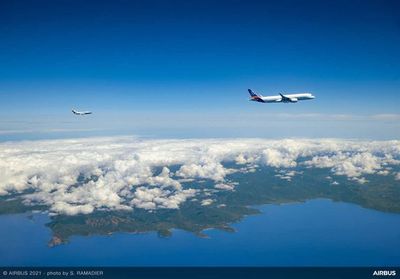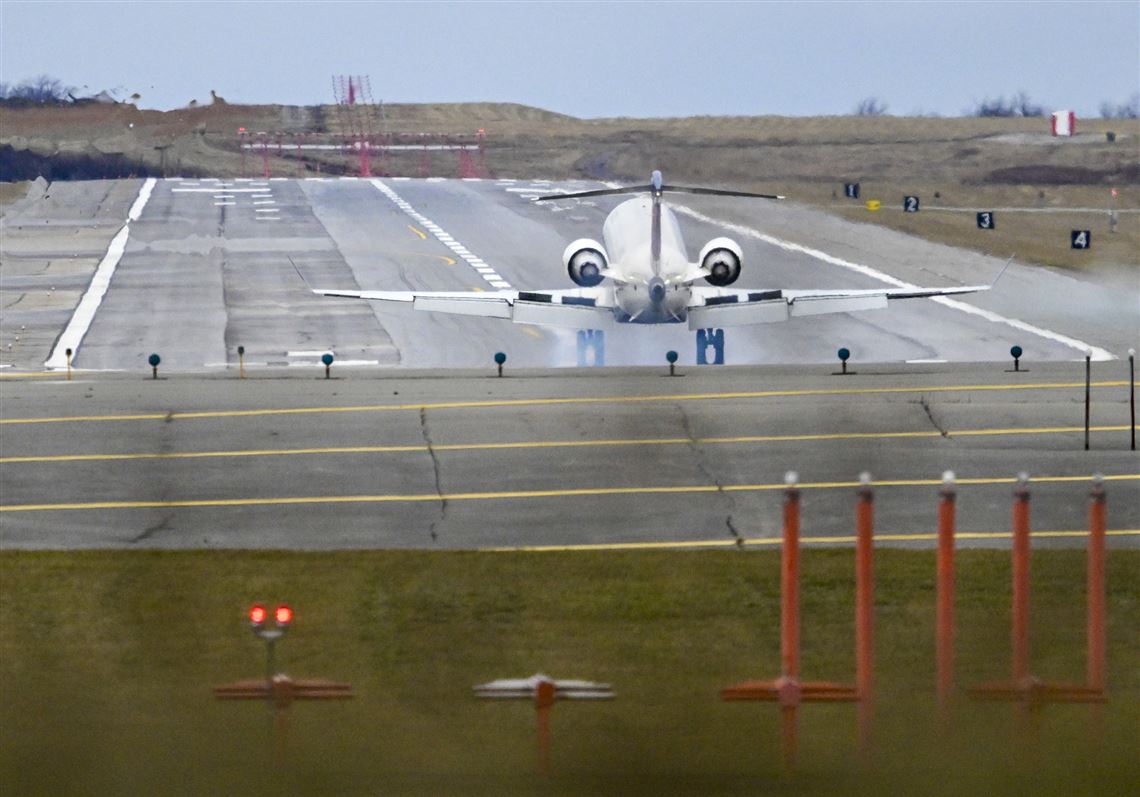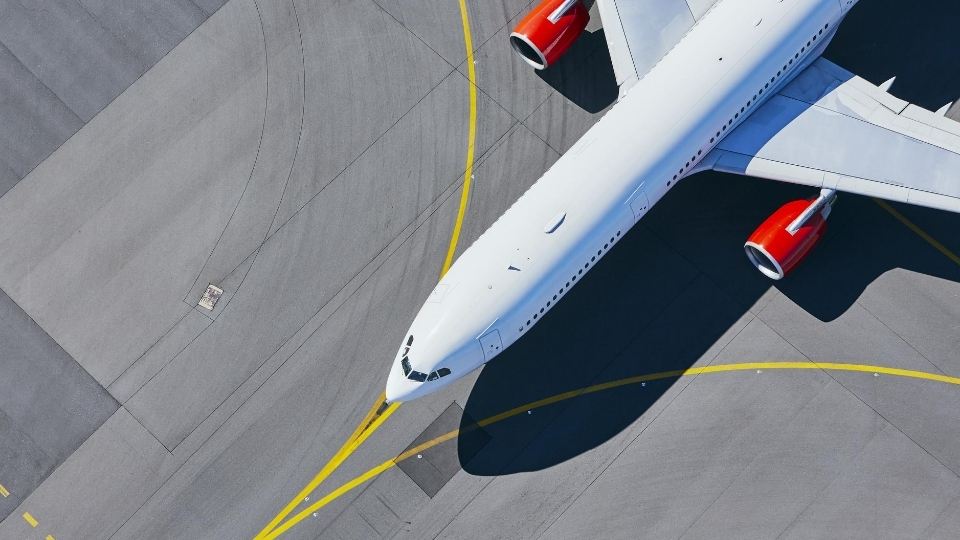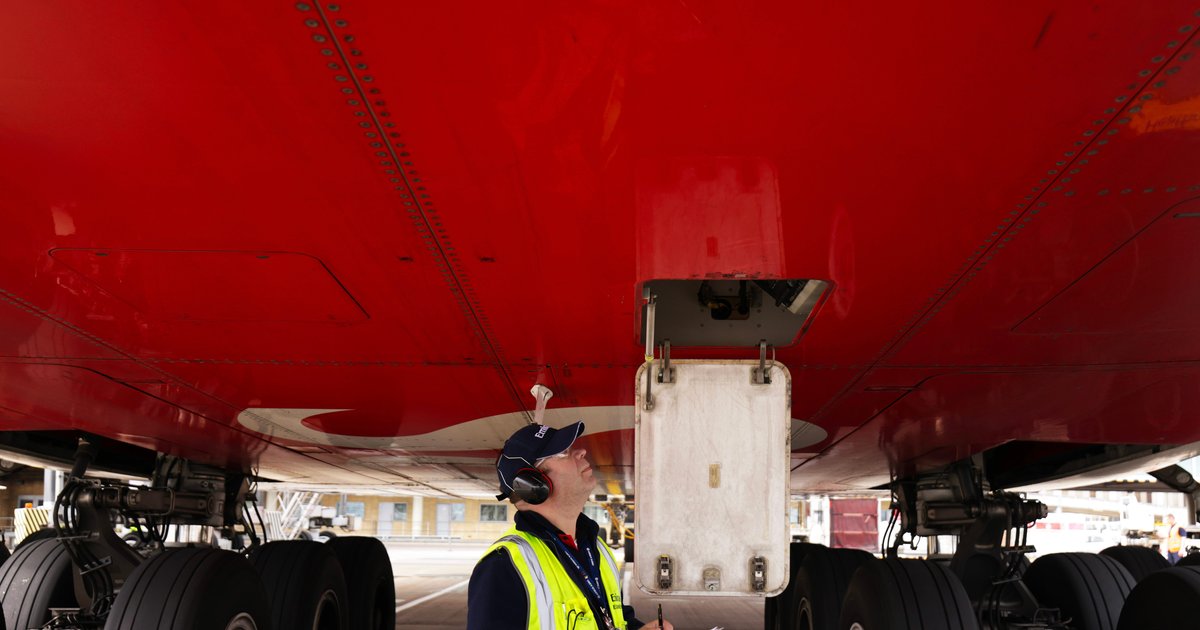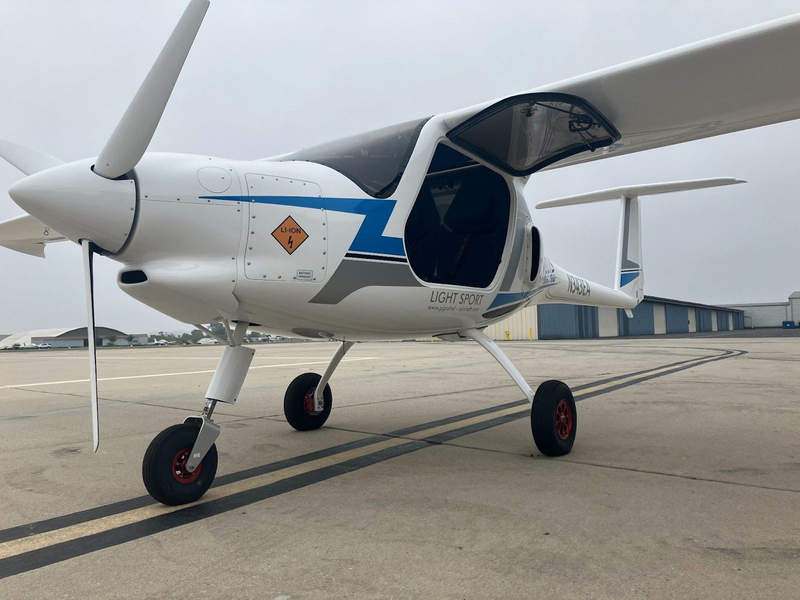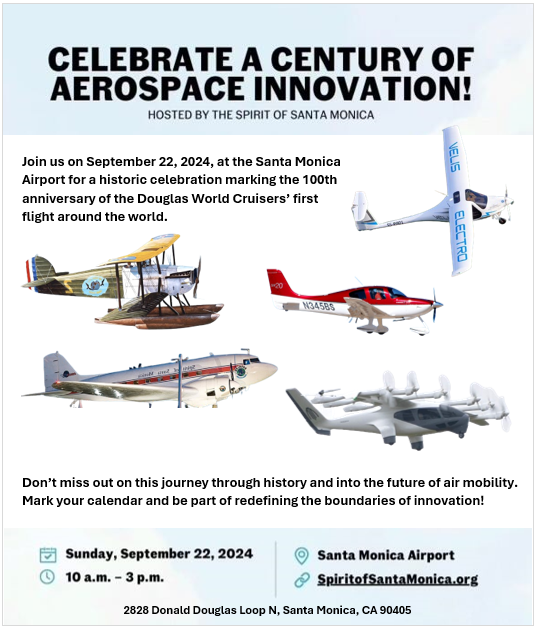
The test is a milestone towards operating flights with 100% sustainable fuel.
Currently, GE Aerospace engines power three out of four commercial flights worldwide, the company said.
Among the tests, which have been taking place since 2016, were test flights operated with SAF. Most recently, Emirates Airlines operated a flight on an Airbus A380 powered by four engines made by a GE subsidiary – one of them fueled by SAF.
Current regulations allow commercial flights to operate with a blend of SAF and jet fuel, however airlines, regulators and manufacturers are working towards operating flights with 100% recycled fuel. GE’s tests were conducted with Hydrotreated Esters and Fatty Acids (HEFA) fuel thats made of vegetable oils, waste oils, or fats.
“Right now [SAF] is more expensive and it’s hard to find, but that’s something that’s going to change over time,” Chris Lorence, chief engineer and general manager at GE Aerospace, told ABC News. “As more capacity comes online, our hope is that it’s going to be comparable or better than jet fuel today.”
Currently, GE Aerospace engines power three out of four commercial flights worldwide, the company said.
Among the tests, which have been taking place since 2016, were test flights operated with SAF. Most recently, Emirates Airlines operated a flight on an Airbus A380 powered by four engines made by a GE subsidiary – one of them fueled by SAF.
Current regulations allow commercial flights to operate with a blend of SAF and jet fuel, however airlines, regulators and manufacturers are working towards operating flights with 100% recycled fuel. GE’s tests were conducted with Hydrotreated Esters and Fatty Acids (HEFA) fuel thats made of vegetable oils, waste oils, or fats.
“Right now [SAF] is more expensive and it’s hard to find, but that’s something that’s going to change over time,” Chris Lorence, chief engineer and general manager at GE Aerospace, told ABC News. “As more capacity comes online, our hope is that it’s going to be comparable or better than jet fuel today.”




